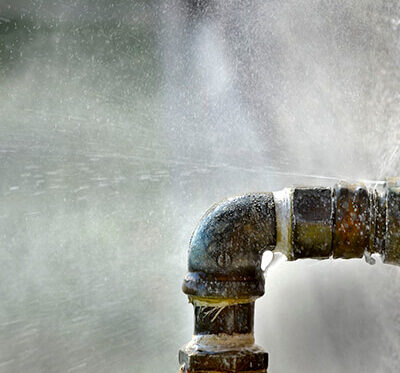If you live in an older home and begin to notice the signs of faulty pipes, you should consider having them replaced. While repiping your home might seem like a big project, it’s better to get it done before a major rupture causes significant damage to your property.
In this article, we’ll discuss common pipe materials and their lifespans, the warning signs you can look for to determine whether your home has faulty pipes, and how our team at Delta Mechanical can help if your pipes need replacement.
Common pipe materials and their life spans
- Copper pipes can last for 50 plus years depending on how well they’re maintained.
- Brass piped tend to last for around 40 to 45 years.
- Cast iron typically lasts for around 75 to 100 years.
- Galvanized steel can last for anywhere between 20 and 50 years.
- PVC pipes can technically last indefinitely due to their composition but realistically last between 25-40 years.
The two caveats here are lead pipes, which were commonly used in the early 1900s, and polybutylene pipes, which were used from the 1970s up through the 1990s. Lead is extremely poisonous, and polybutylene is incredibly prone to breakage. If you think you have either type of material in your house, we suggest you get it replaced immediately.
If you know when your house was built, and when its piping system was installed, then you should have an idea of roughly when your piping system might need to be replaced. If your pipes are old according to the age chart we provided above, then we suggest that you start checking for the warning signs of bad pipes around your home at least once a year.
Warning signs for bad pipes
- Discolored water: Discolored water is often a sign that your pipes are corroding, rusting up your water supply. If you notice that your pipes are consistently spewing rusty or discolored water – particularly from multiple sources – then it’s time to call the plumber.
- Leaks: If you see or smell mold or mildew in your house, it’s probably the result of a leak. Since even a small leak can cause major structural damage, and mold can be detrimental to your health, it’s vital that you call a plumber at the first signs of mold or mildew that reappears in the same spot consistently. Another common sign of a leak is decreased water pressure.
- Visible pipe damage: If your pipes are starting to look dimpled or if material starts flaking off of them, that means your pipes are probably due for a replacement.
- Structural damage” If you notice stains or cracks appearing in walls, or that the ceiling or floor seems to be warping or buckling, chances are your pipes are faulty. When you see structural damage that looks like it could be caused by faulty pipes, call a plumber as soon as you can.
How Delta Mechanical can help you replace lost pipes
If you think that your home has faulty pipes, give Delta Mechanical a call! Our expert team provides world-class, turnkey plumbing solutions for homeowners, and will stop at nothing less than satisfaction. To learn more about what Delta Mechanical can do for you, contact us today!
And be sure to check out our online specials, too!



